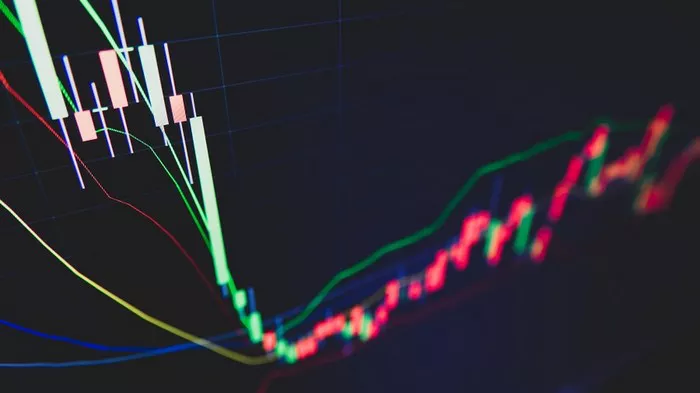Embarking on a journey into the world of futures trading is both enticing and challenging. Aspiring traders often find themselves pondering a crucial question: Can you make a living trading futures? The answer is nuanced, requiring a comprehensive understanding of the dynamics, risks, and potential rewards associated with futures markets.
Understanding the Nature of Futures Trading
Futures trading involves the buying and selling of financial contracts known as futures contracts. These contracts derive their value from an underlying asset, which can range from commodities like oil and gold to financial instruments such as stock indices and interest rates. Traders in the futures market speculate on the future price movements of these assets, aiming to profit from price differentials. The leverage inherent in futures trading allows traders to control large positions with a relatively small amount of capital.
Leverage and Risk Management
While leverage provides traders with the potential for amplified returns, it also introduces a heightened level of risk. In the context of futures trading, where price movements can be swift and volatile, effective risk management is paramount. Traders must carefully consider the size of their positions relative to their capital, set stop-loss orders to limit potential losses, and diversify their portfolios to spread risk. The ability to manage leverage wisely is a defining factor in whether one can make a sustainable living from futures trading.
Educational Foundation
Successfully navigating the complexities of futures trading requires a solid educational foundation. Traders must grasp fundamental concepts such as market analysis, technical indicators, and risk assessment. Continuous learning is crucial, given the dynamic nature of financial markets. Many successful futures traders invest time and resources in ongoing education, staying informed about market developments, new trading strategies, and evolving economic factors that may impact their positions.
Market Knowledge and Analysis
A comprehensive understanding of market dynamics is indispensable for those aspiring to make a living trading futures. Traders engage in both technical and fundamental analysis to inform their trading decisions. Technical analysis involves studying price charts, trends, and statistical indicators, while fundamental analysis requires an in-depth understanding of economic factors, geopolitical events, and supply-demand dynamics that influence the prices of underlying assets. Successful traders employ a blend of these analytical approaches to gain a holistic view of the markets.
Discipline and Emotional Resilience
Discipline and emotional resilience are cornerstones of successful futures trading. The ability to stick to a well-defined trading plan, manage emotions during periods of market turbulence, and learn from both successes and failures is critical. Impulsive decisions driven by fear or greed can lead to significant losses. Traders who can maintain discipline, adhere to risk management strategies, and stay emotionally resilient are better positioned to navigate the inevitable ups and downs of futures trading.
Risk of Loss and Capital Preservation
The risk of loss is inherent in futures trading, and traders must approach the markets with a realistic understanding of this risk. While the potential for profit is enticing, there is an equal likelihood of incurring losses. Successful futures traders prioritize capital preservation, recognizing that protecting their trading capital is fundamental to long-term success. Conservative risk management strategies, such as setting stop-loss orders and avoiding excessive leverage, play a crucial role in safeguarding capital.
Market Volatility and Opportunities
Futures markets are known for their inherent volatility, presenting both challenges and opportunities. Traders who can navigate and capitalize on market volatility stand to profit from price fluctuations. Volatility provides opportunities for short-term trading strategies, such as day trading or swing trading. However, it also requires a heightened level of vigilance and the ability to adapt quickly to changing market conditions.
Developing a Trading Strategy
Successful futures traders often develop and adhere to a well-defined trading strategy. This strategy encompasses entry and exit points, risk-reward ratios, and criteria for selecting trades. Some traders focus on trend-following strategies, aiming to capitalize on sustained price movements, while others may adopt mean-reversion strategies, seeking to profit from price reversals. The key is to have a clear and tested strategy that aligns with individual risk tolerance and financial goals.
Continuous Adaptation and Innovation
Financial markets are dynamic, and what works in one market condition may not be effective in another. Traders who make a living from futures trading recognize the need for continuous adaptation and innovation. This may involve refining existing strategies, incorporating new technologies, or diversifying into different markets. The ability to stay agile and evolve with changing market dynamics is a hallmark of successful futures traders.
Balancing Act: Part-Time or Full-Time Trading
The decision to make a living trading futures may involve a balancing act, especially for those transitioning from other professions. Many successful futures traders start by trading part-time while maintaining other sources of income. This allows for a gradual transition, providing a safety net while honing trading skills. As proficiency and confidence grow, some traders may choose to transition to full-time trading. The flexibility of futures markets enables traders to adapt their trading activities to their individual preferences and lifestyle.
Conclusion
Making a living trading futures is not a guaranteed path to financial success, and it comes with inherent risks and challenges. Success in futures trading requires a combination of education, discipline, risk management, and continuous adaptation. While some individuals have achieved financial independence through futures trading, it’s essential to approach this endeavor with a realistic mindset and a thorough understanding of the complexities involved. Aspiring traders should focus on building a solid foundation, gaining practical experience, and refining their strategies before considering futures trading as a primary source of income. In the dynamic world of financial markets, those who navigate with prudence, discipline, and continuous learning increase their chances of turning the potential of futures trading into a sustainable and rewarding livelihood.


